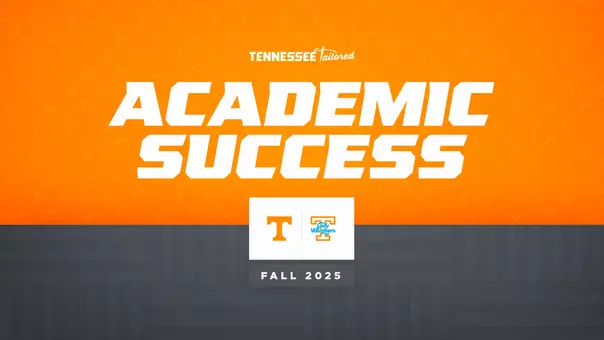University of Tennessee Athletics
UT Athletics Provides Financial Update
August 27, 2012 | General
Aug. 27, 2012
KNOXVILLE, Tenn. - The 2011-12 fiscal year has closed for the University of Tennessee department of athletics, and the department is reporting a $3.98 million deficit for the year. The department, which receives no public dollars from the state of Tennessee, took in $106,485,376 in revenues against an expense total of $110,466,652 during the last fiscal year.
To fund this deficit, the UT department of athletics has utilized a substantial portion of its reserve, reducing the amount in the fund to slightly less than $2 million dollars.
As a part of the ongoing assessment of all components of UT Athletics during the past year, Vice Chancellor/Director of Athletics Dave Hart has evaluated all elements of the athletics funding process as well as ways to create a sustainable financial model that will promote growth within both athletics and the University. A deficit for the last fiscal year was anticipated, and the financial model currently in place for athletics is not sustainable long-term.
A long-term strategy for building a reserve for the department of athletics, while drawing down current debt service, has been prioritized by Athletics Director Dave Hart, as the current reserve amount is well below balances maintained by peer institutions.
"It is critical that our athletics program be financially healthy and that its budget is sustainable," said Chancellor Jimmy G. Cheek. "We are committed to having premier athletics programs at the University of Tennessee, and to do that, we must develop a financial model that pays for these programs while also building up the necessary reserve funds.
"I support Dave Hart's efforts and commend him for the work that has already been done to get us on more sound footing. This work benefits the entire campus of the University of Tennessee."
There are multiple components related to the historical budget model for athletics at UT that are contributing factors to the current financial situation and the lack of a reserve. All of these issues are being evaluated for possible adjustment by both Chancellor Cheek and Hart. Among those contributing historical factors are:
Agreements historic in nature. The UT Department of Athletics provides a minimum gift/philanthropy transfer of $6 million to the University each year based on agreements under prior leadership. This transfer provides for undergraduate scholarships, graduate fellowships, initiatives related to undergraduate student success, discretionary funds for UT Martin, UT Chattanooga, the Agriculture campus at UT Knoxville, and the UT Health Sciences Center in Memphis, and debt service on selected UT parking garages.
The total department of athletics spending within the University is approximately $21 million per year and also includes items such as scholarships for student-athletes, usage fees for Thompson-Boling Arena, fees paid to the campus parking authority for athletic event parking passes and licensing revenues generated by athletics that are used for University programs.
These historical commitments were entered into in good faith by both the athletics department and University leadership but are currently being evaluated by the Chancellor and Athletics Director in order to determine if adjustments are necessary. These athletics-generated revenues are budgeted by the University on the front-end of the fiscal year.
Changes in leadership. During the past four years, the athletics department has experienced a significant expense related to payments to former coaches in the sports of football, baseball and men's basketball as well as former directors of athletics. These situations have played a role in diminishing the cash reserve balance of the department of athletics.
Debt service. The UT Department of Athletics currently has more than $200 million in outstanding debt related to the construction of and improvements to multiple athletics facilities. The debt service is currently being drawn down per the previously devised schedule, but a plan is being developed to accelerate the retirement of the debt more aggressively.
Fixed costs. There are certain costs, such as scholarships and utilities that are fixed and will continue to rise each year. Approximately 80% of UT student-athletes are from out-of-state, meaning the department pays higher tuition and fees on the great majority of athletes. Conversely, UT's general student body is comprised of only 10% out-of-state students.
Taxation. At a tax rate of 14.25% on tickets, including a 9.25% state sales tax, a 4.5% city tax, and a 0.5% county tax on tickets, Tennessee is the most heavily taxed athletics department in the nation. The city and county tax, passed many years ago, applies only to the Neyland Stadium and Thompson-Boling Arena facilities and are directed at athletic events only (football, men's and women's basketball).
For the 2011-12 fiscal year, this amounted to a $4.6 million tax bill. With all peer institutions paying either significantly less or nothing in this category, the heavy rate of taxation takes a significant burden on both the year-to-year financial situation as well as the building of a reserve, particularly when accumulating tax payments over several years.
The economic impact of the University of Tennessee department of athletics in the Knoxville community is substantial, and while a study to update this figure is in progress, a 2007 study estimated the economic impact of UT Athletics to Knoxville at $119 million annually.
Among the specific ways in which the UT Athletics financial model is being addressed and adjusted include the following:
Athletics department consolidation and restructuring. Combining the previously separate athletics departments at UT has allowed for the elimination of duplicate expenses from both an operations and a personnel standpoint. Becoming better stewards of the financial resources of the department has been one of Hart's top initiatives for UTAD employees since his arrival.
The decisions related to the restructuring of the department and the elimination of positions in April 2012 were made as part of an overall strategy to streamline athletics operations and provide for greater efficiency.
Conference distributions. As a part of this long-term strategic plan to build the reserves and draw down the debt service of the department of athletics, any new revenues derived from distributions from the Southeastern Conference will be allocated to the athletics budget.
Fund balances from past transfers. Athletics has traditionally funded a variety of non-athletic scholarships for the University. There are multiple scholarships in which the fund balance is sufficient to cover all scholarships in the foreseeable future. The University is evaluating what future financial commitments athletics will continue to provide towards these scholarships.
Licensing revenues. Traditionally, licensing revenues have been shared between the University and the athletics department. A plan to allocate a greater percentage of licensing revenues to the athletics department is moving toward approval, with the exact percentage yet to be determined.
Performance-based campus transfer. The University of Tennessee is committed to adopting a better model for the transfer of money from athletics to the campus. Discussions are underway examining strategies to accomplish this. A more fiscally sound model is essential to provide for the long-term health of the athletics program.
UNIVERSITY OF TENNESSEE ATHLETICS DEPARTMENT FISCAL YEAR 2011-12 REVENUES
| REVENUES | Total ($) |
| Tickets | 37,753,467 |
| Donations | 23,652,836 |
| Marketing/IMG | 9,737,410 |
| SEC | 20,208,777 |
| Concessions/Souvenirs | 3,024,782 |
| Licensing | 2,800,000 |
| Endowment Interest | 1,385,533 |
| Student Fees from Campus | 1,000,000 |
| All Others | 5,450,972 |
| Camp Revenues | 1,471,599 |
| TOTAL REVENUES | 106,485,376 |
| EXPENSES | Total ($) |
| Salaries & Benefits | 37,285,629 |
| Scholarships | 9,529,062 |
| Operations | 38,970,147 |
| Debt Services | 10,523,881 |
| Sales Tax | 3,044,448 |
| City/County Tax | 1,552,922 |
| Arena Deficit | 1,720,322 |
| University Support | 6,392,000 |
| Camp Expenses | 1,448,241 |
| TOTAL EXPENSES | 110,466,652 |
NET SURPLUS /(DEFICIT): (3,981,276)
UTAD TRANSFERS TO UNIVERSITY 2011-12
| TRANSFERS TO KNOXVILLE CAMPUS | Total ($) |
| Volunteer Scholarships | 1,000,000 |
| Graduate Fellowships | 800,000 |
| Student Success Center | 200,000 |
| Band Scholarships | 75,000 |
| Discretionary Funds | 1,875,000 |
| TOTAL | 3,950,000 |
RECEIVED FROM CAMPUS (Student Fees ^): 1,000,000
^-As voted by the student body
NET TRANSFER TO UT KNOXVILLE CAMPUS: 2,950,000
| TRANSFERS TO UT SYSTEM ENTITIES CAMPUS | Total ($) |
| UT Plane Support | 160,000 |
| Agriculture Campus Professorship | 107,000 |
| Discretionary Funds - UT Chattanooga | 175,000 |
| Discretionary Funds - UT Martin | 175,000 |
| Discretionary Funds - Health Sciences | 455,000 |
| Discretionary Funds - Agriculture | 245,000 |
NET TRANSFER TO UT SYSTEM ENTITIES: 1,317,000
| UTAD TRANSFERS FOR PARKING GARAGE | Total ($) |
| DEBT SERVICE | |
| 11th Street Garage | 400,000 |
| G10 Garage - First Phase | 285,000 |
| G10 Garage - Second Phase | 240,000 |
| Lake Ave. Garage | 100,000 |
| White Ave. Garage | 100,000 |
| NET TRANSFER FOR PARKING GARAGE DEBT | 1,125,000 |
TOTAL TRANSFERS TO UNIVERSITY: 6,392,000
NET TRANSFERS TO UNIVERSITY: 5,392,000
UTAD DEBT SERVICE 2011-12
| DEBT SERVICE PAYMENTS | Total ($) |
| Thompson-Boling Arena* | 1,558,825 |
| Lindsey Nelson Stadium | 26,129 |
| Fleming/Siler Properties^ | 215,012 |
| North End Zone Expansion (1996) | 1,126,588 |
| Thornton Center Building | 168,752 |
| Neyland Stadium Skyboxes (2000) | 2,002,323 |
| Regal Soccer Stadium | 348,716 |
| Allan Jones Aquatic Center | 943,894 |
| Neyland Stadium (2005-10) | 3,902,730 |
| Sherri Parker Lee Softball Stadium | 200,941 |
| ATHLETIC DEBT SERVICE PAYMENTS | 10,523,881 |
*-$457,889 for original project in 1987 and $1,130,936 for renovations in 2007.
^-Includes the land on which the soccer and softball stadiums are constructed.
















